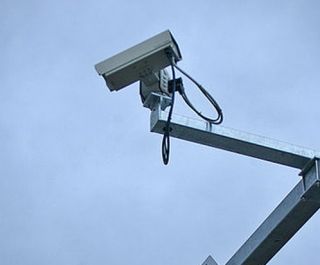Law and Crime
If a Traffic Camera Catches You, Your Fine Should Be Less
How much you pay for a traffic violation should depend on how you were caught
Posted July 17, 2013

What is the optimal amount to fine someone for running a red light? Should it be more or less than for running a stop sign or speeding? How should it compare to transporting cocaine?
These are questions for jurisprudence and legal systems, but they boil down to human psychology. Fines are tools for motivating safe behavior, and when we talk about motivation, we are talking about the mind.
In the 1960’s a young generation of clever scholars with economic training invaded the field of jurisprudential theory and changed a lot of things. Most famously, they completely reshaped anti-trust law. But they also used microeconomics to study how people decide to commit crimes and which crimes to commit.
One of the first people to do this was Gary Becker (who later won the Nobel Prize for this work). One day (according to legend) he was trying to park near Columbia University and was trying to decide whether to park in an illegal spot. He used the standard economic approach: multiply the fine by the probability of getting a ticket to compute the expected cost of parking there. Then he had his Nobel-worthy epiphany: criminals are probably also relatively rational profit-maximizers too.
Prior to this, the dominant theory was that criminals were completely irrational and thus unpredictable. Becker and colleagues showed in many influential studies that this is not so.
One of the things the Law+Economics group showed is that punishments ought to fit the crime. Obviously the punishment shouldn’t be too small; otherwise it won’t deter the crime.
But it also shouldn’t be too big. Fines or jail time that are too large cause what economists call market distortions. They push criminals to other crimes. They motivate jurists to bargain with criminals. They reduce cooperation by non-criminals like family members. They encourage disrespect for the law. They ultimately weaken the foundations of the legal system.
The optimal punishment for a crime is generally approximately what the crime costs to society, including maintaining a police force to capture the criminals and a legal system to try them. And this amount should be multiplied by the reciprocal of the probability of getting caught.
So crimes that are hard to solve, like hit-and-runs, should have much greater fines than ones that are easy to solve, like speeding. This explains, for example, why courts should reduce penalties for people who commit a hit-and-run and then turn themselves in the next day.
This brings us to the problem of traffic cameras. Many municipalities have installed them and they are very good at catching lawbreakers. They take a photo of your license plate and then look up your address and send you a ticket in the mail, all automatically!
And guess what? People are furious. They are agitating to make the cameras illegal. It’s a big problem.
Here’s my suggestion: the true cost to society of running a red light is probably closer to $10 than to a few hundred dollars. The normal cost of a ticket is inflated by the fact that most people get away with it most of the time. But with cameras, the chance of getting caught has risen dramatically, but the price of tickets hasn’t fallen accordingly.
It should.


